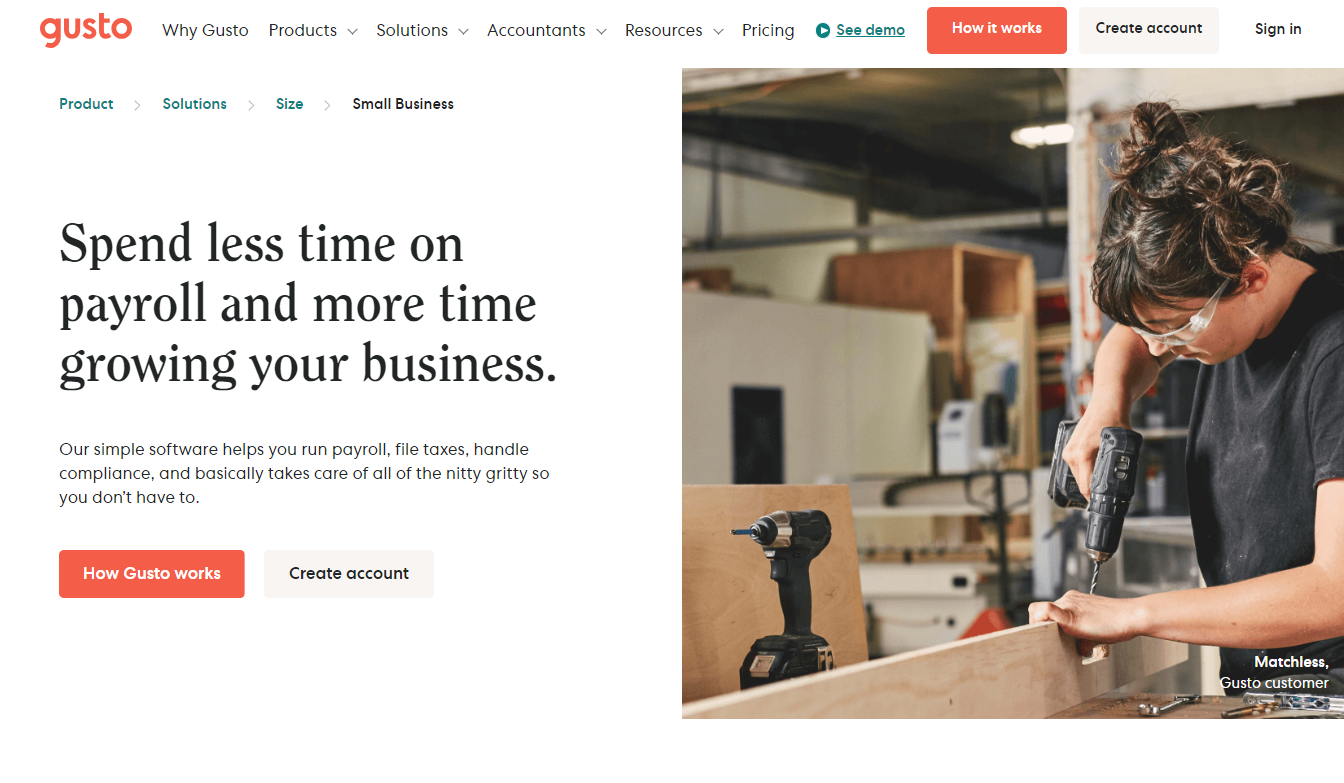We may receive a commission from advertisers at no additional cost to you. Read our disclosure for details.
Starting a small business can be an exciting venture, but it comes with its fair share of financial challenges. And stress!
As an entrepreneur, you need a budget to build a strong foundation for your business. Not only that, it’s a solid business practice to prioritize where your money goes — especially in the early stages.
Imagine you’re taking the family on a road trip. Of course, things like gas, food, and lodging are important, but how about that set of new tires you’ve been putting off? Or the oil change?
When it comes to your business, having a budget is like a roadmap that guides you. By focusing on the more important items at the top you set yourself up for success.
If you get sued or your car breaks down, a nice-looking website won’t help.
In this post, we list the 10 most important budget items, in order of importance when starting a small business.
You Can Run Out of Money!
Let’s get this out of the way — starting a small business is risky and unfortunately, many don’t make it. Even poorly managed corporations have come and gone.
Right behind finding demand for your product or service your biggest challenge is having enough money to survive past year two according to Entrepreneur Magazine.
Somewhere there’s a graveyard full of companies that never got a chance to save the world because they ran out of money. But here’s some good news: history leaves clues and there’s a lot to learn from those businesses.
Having a budget will “force” you to spend money in a strategic manner instead of what feels right. It’s not just good business practice – it’s backed by facts.
I worked for a guy who thought he could wine and dine his way to a fortune. It worked for many years until he ran out of money and our clients didn’t like going from steak dinners to pizza.
When you’re strategic about where your money goes, you increase the chances that your business will be around for a while.
But if you push the important stuff to the bottom, how do you pay for a lawyer when you need one or the hospital bill after a car accident?
Pay the important bills first, meet your needs, then allocate funds accordingly.
By prioritizing wisely, you’re not only ensuring the longevity of your business but also providing a safety net for your personal well-being.
Starting a Small Business Without a Budget
Investing time and energy into budgeting is truly valuable because it acts as an essential financial guide.
When possible, avoid starting a small business without a budget.
A small business budget brings about important advantages by strategically positioning the company for stability, longevity and success.
Budgeting is beneficial for various reasons:
- Financial Planning: It aids in planning and managing your finances effectively.
- Resource Allocation: Helps in distributing resources wisely for optimal utilization.
- Decision-Making: Provides insights for making informed financial decisions.
- Risk Management: Assists in identifying and mitigating potential risks.
- Attracting Investors: Demonstrates a clear financial strategy that can attract potential investors.
By setting achievable financial goals and creating benchmarks, budgeting equips startups to navigate their financial journey with confidence.
Why You Should to Prioritize
Imagine a kid staring at an ice cream cone or an entrepreneur struck by a brilliant idea. How do you contain that excitement!?
Enthusiasm is contagious and a lot of new business owners, fueled by their eagerness to spread the word about the product we can’t live without, will often spend their resources on the wrong things.
It’s a natural response, but if you’re not careful, you can miss setting aside funds for crucial aspects of your business that need your attention.
In other words, fixating on less important details while pushing aside the essentials could lead to trouble down the road.
Think about it like building your dream house. Sure, it’s fun to envision the interior design, landscaping, and Sunday Fundays, but what about the bulldozers, concrete and septic tank?
Overlooking these foundational elements from the start can expose you to some big challenges, potentially putting a major dent in your dreams.
5 Types of Budgeting
For an entrepreneur or anyone starting a small business, selecting the appropriate method of budgeting is essential for effective financial management and successful growth.
Depending on who you ask, there are at least 5 types of budgeting tailored to the needs of new businesses:
Zero-Based Budgeting
- Pros: Zero-based budgeting starts from scratch, requiring a thorough review of all expenses. This approach promotes cost efficiency and ensures that each expenditure is justified, eliminating unnecessary spending. It allows businesses to prioritize essential items based on current needs and goals.
- Cons: Zero-based budgeting can be time-consuming and resource-intensive, as it requires a detailed examination of every cost. It may not be ideal for stable or predictable businesses and may lead to overlooking critical items due to strict scrutiny.
Incremental Budgeting
- Pros: Incremental budgeting uses historical data as a starting point, making it relatively simple and quick to create. It is suitable for stable businesses with predictable expenses and helps maintain continuity by adjusting the budget marginally each period.
- Cons: Incremental budgeting may perpetuate inefficiencies or redundant expenses from previous budgets. It may hinder innovation and fail to consider changes in business conditions or evolving market trends.
Activity-Based Budgeting
- Pros: Activity-based budgeting aligns expenditures with specific activities or projects, helping businesses focus on essential initiatives and optimize resource allocation. It promotes goal-oriented budgeting and allows businesses to identify cost drivers and areas for improvement.
- Cons: Implementing activity-based budgeting can be complex and requires accurate activity cost assessments. It may not be suitable for startups with limited historical data or those with rapidly changing business models.
Value Proposition Budgeting
- Pros: Value proposition budgeting prioritizes expenses that directly contribute to organizational goals, ensuring cost-effectiveness and value-driven decision-making. It encourages a clear alignment between budget allocations and business objectives.
- Cons: Value proposition budgeting may require subjective judgment to determine which expenses add value, potentially leading to disagreements over budget priorities. It may also overlook essential but less apparent support functions.
Flexible Budgeting
- Pros: Flexible budgeting is adjustable based on actual performance, accommodating changes in revenue and expenses. It allows businesses to measure performance accurately by comparing actual results to budgeted figures at different activity levels.
- Cons: Flexible budgeting requires continuous monitoring and adjustments, making it more complex to manage. Without accurate real-time data, its effectiveness may be limited, and it may not suit all business models or industries.
Each budgeting approach offers unique advantages and drawbacks, making it essential for businesses to select the method that best aligns with their goals, resources, and market dynamics.
Selecting the right budgeting method depends on the unique needs and objectives of a startup or new business.
Each approach offers distinct advantages in managing finances and fostering growth, empowering startups to thrive and succeed in their early stages of operation.
Top 10 Most Important Budget Items
Setting up a small business involves careful financial planning. Here’s our list of the top 10 most important budget items in order:
- Legal and Licensing Fees: Allocate funds to register your business, secure permits, and cover legal expenses.
- Insurance: Safeguard your business with liability, property, and relevant insurance policies.
- Professional Services: Budget for accounting, legal counsel, and consulting services to ensure regulatory adherence and strategic planning.

4. Initial Inventory and Supplies: Set aside resources for the necessary stock and supplies.
5. Equipment and Technology: Invest in vital tools, machinery, and technology for seamless operations.
6. Rent and Utilities: Allocate funds for leasing a physical space and covering utility costs.
7. Marketing and Advertising: Promote your brand to attract customers and expand your reach.
8. Employee Salaries and Benefits: If applicable, budget for wages, benefits, and payroll taxes.
9. Website and Online Presence: Establish an online platform and invest in digital marketing for effective online engagement.
10. Emergency Fund: Create a financial cushion for unexpected expenses or business fluctuations.
How to Get Small Business Funding
Starting a small business is an exciting venture that holds immense potential, but there’s a crucial ingredient needed to bring your vision to life.
You’ll need money to turn your dream into reality and there are a few ways to get it:

- Personal Savings: When you tap into your own funds, you’re not just sidestepping external debt you’re showing your commitment and investing directly in your business. Put your money where your mouth is. This option underscores your resolve and can inspire confidence in potential partners, stakeholders, and investors who share your vision.
- Friends and Family: Reaching out to your nearest and dearest for financial backing can bring immediate access to funds, often with terms that are more flexible and considerate of your circumstances. This approach keeps the personal touch intact between you and your backers. However, remember that transparency and clear expectations are key to maintaining those relationships.
- Small Business Loans: Small business loans open the door to a wealth of possibilities through established lenders and banks. This route can provide a pathway to capital for much of your business needs. Be prepared – banks can be very strict when making loans and have more requirements.
- Alternative Lenders: Need funds with more flexibility? Online platforms can offer easy access to short-term loans, a line of credit, and many other options. Companies like Big Think Capital boast an extensive network of private lenders with more adaptable terms than traditional banks. Be mindful, however, of fees and rates.
- Business Incubator: These specialized programs don’t just offer funding, but also mentorship, resources, and physical space to help grow your business. Incubators focus on startups that are in the product development phase. Many colleges have incubators specifically tailored to local businesses. Y Combinator and MassChallenge are good examples. Keep in mind, there is no such thing as a free lunch and you might have to give up some equity.
- Small Business Grant Programs: Expanding on this, small business grant programs offer non-repayable funds from governmental or private entities. These grants serve as a financial boost that doesn’t require repayment, supporting your business’s growth and development. A great place to learn more about these programs is the U.S. Chamber of Commerce.
Obtaining funding is crucial for realizing your entrepreneurial aspirations. Each funding avenue comes with its own advantages and drawbacks, and the ideal choice hinges on factors like your business model, objectives, and willingness to take on risk.
Summary
Starting a small business requires careful financial planning, especially when working with a limited budget. In this post, we outlined what we believe to be 10 must-have budget items for every startup business.
By prioritizing these budget items, you can create a strong business foundation and increase your chances of long-term success.
From a well-designed website and efficient business software to skilled employees and strategic marketing efforts, each item plays a crucial role in driving growth and achieving business objectives.
By making informed financial decisions and allocating resources wisely, startup entrepreneurs can navigate the challenges of the initial stages and pave the way for a thriving and sustainable business venture.
Related Links
Information is meant to be accurate and educational and not intended to be legal, medical or financial advice. Be sure to do your own research and if necessary contact a professional for help. Posts on this site may contain links to partners and affiliates. Read our disclosure for details.

